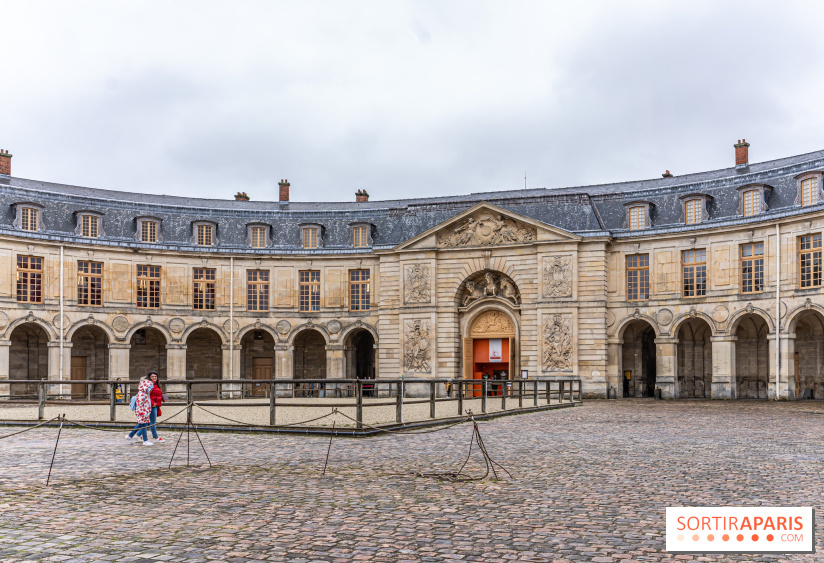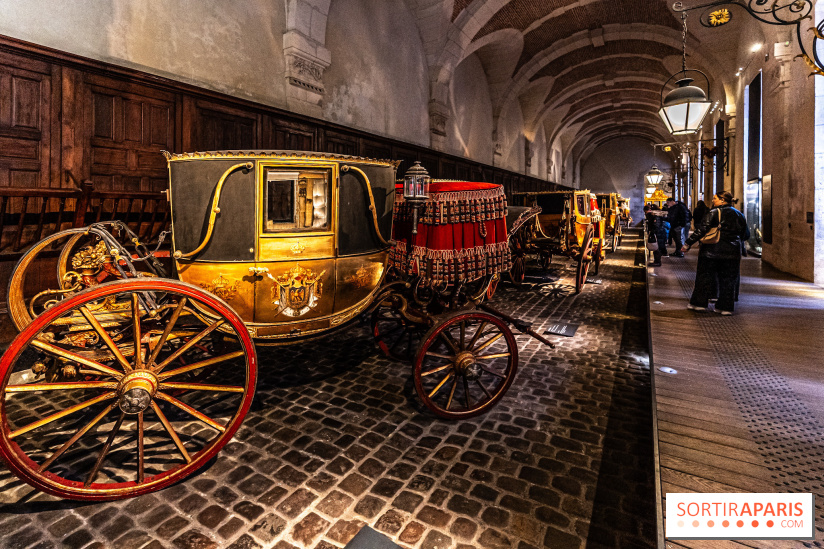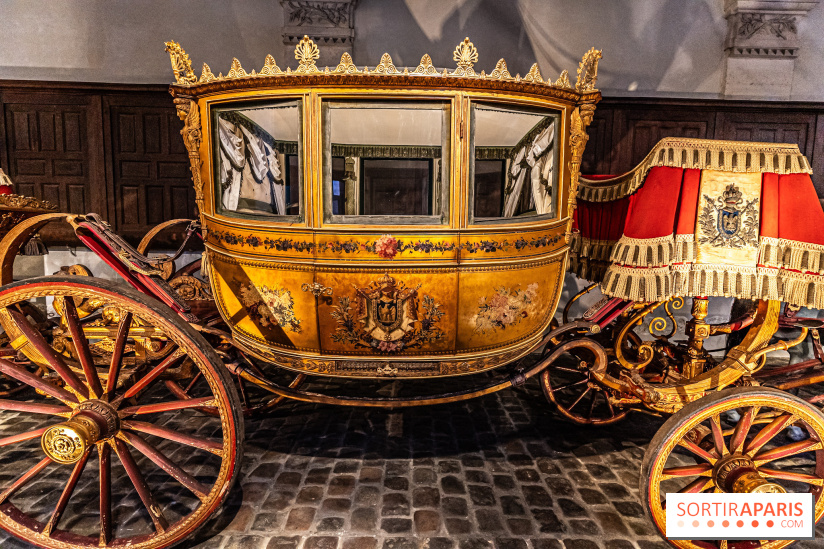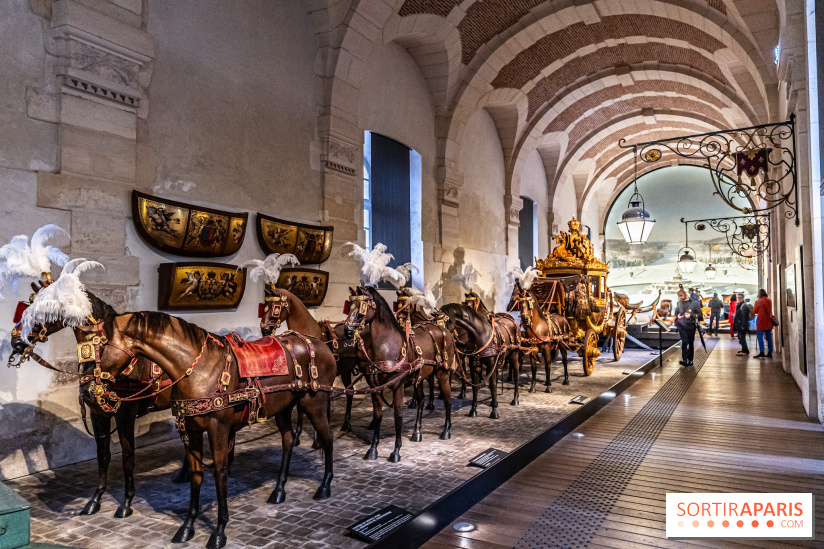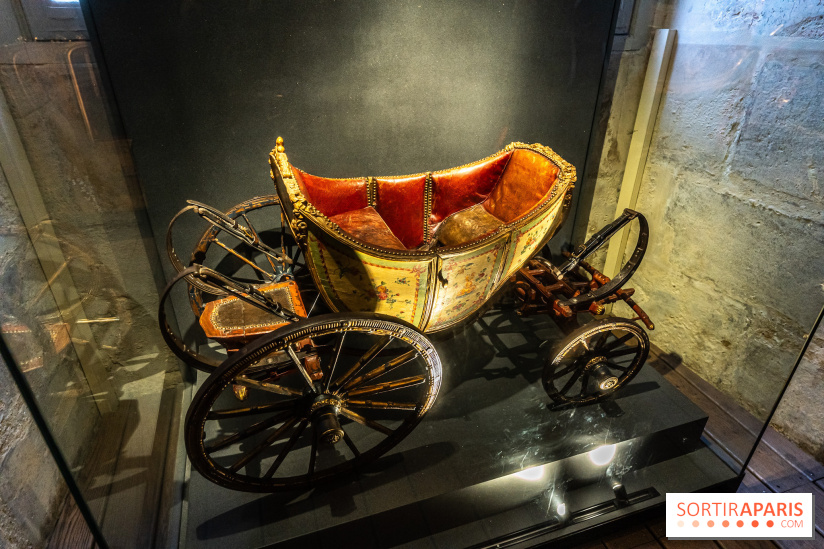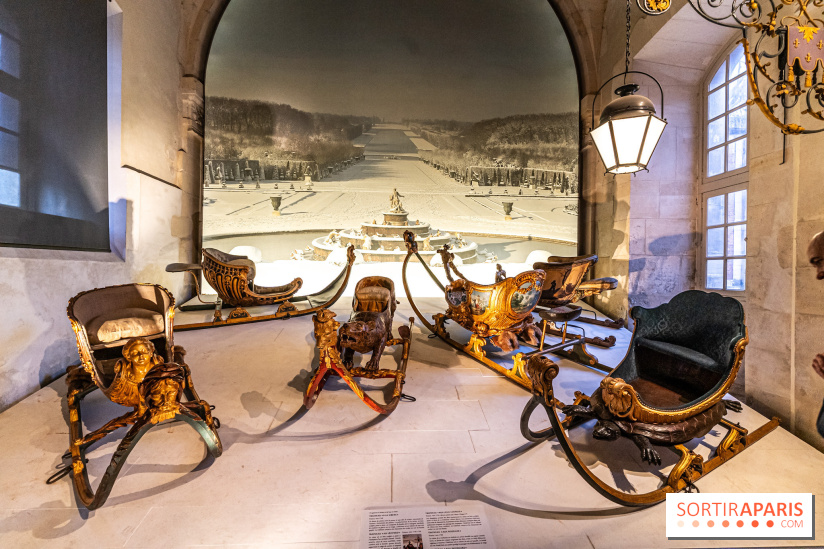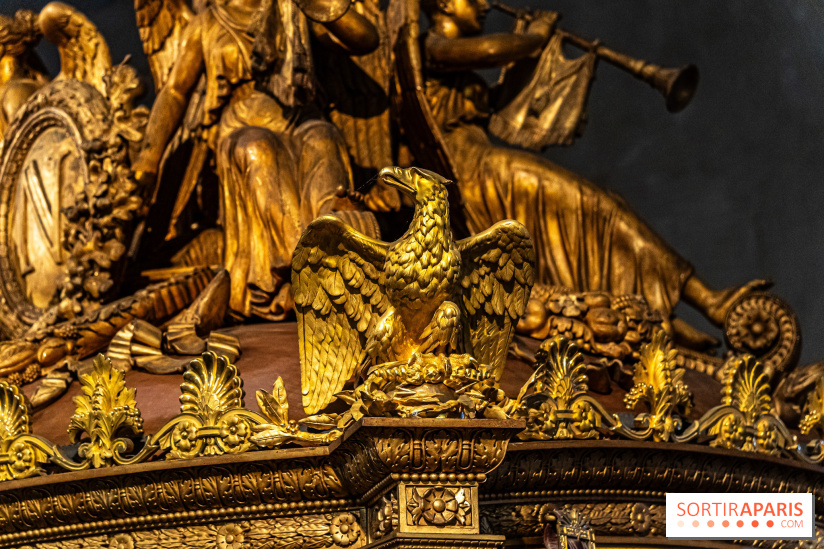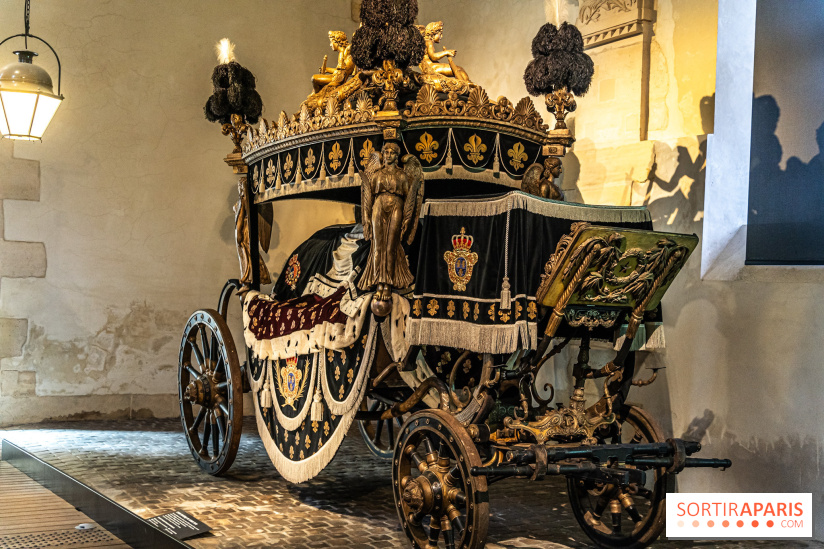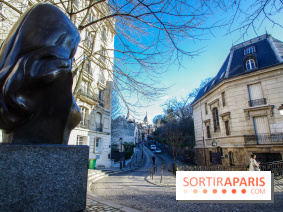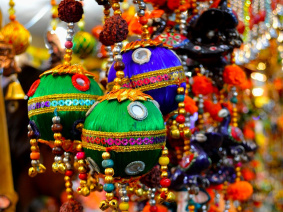Located on the left, opposite the Château de Versailles, the Grande Écurie du roi is a huge, arched building. Once you've entered the courtyard, you can access the equestrian shows on the left after paying the entrance fee, or opt for a visit to the Galerie des Carrosses, which is free every weekend and whose entrance is on the far right of the building's arc.
When you enter this gallery, you'll see a whole chapter of French history unfold before your eyes. The Galerie des Carrosses, formerly known as the Musée des Carrosses until 2006, presents itself as an open window on the past. Evoking the majesty of the monarchs and the splendor of the Court, we discover grandiose carriages, sleighs forming a fantastic bestiary and sedan chairs bearing witness to the life of the Court.
The Grande Écurie, designed by Jules Hardouin-Mansart, Louis XIV's most famous architect, stands proudly opposite the château, forming with its twin, the Petite Écurie, an architectural ensemble of imposing beauty. These buildings, much more than mere shelters for horses and carriages, were the scene of the daily life of a vibrant court, where artisans and nobles mingled, all players in the royal grandeur.
The Galerie des Carosses, created under the aegis of Louis XIV around 1665, marked the advent of modern carriages in France, revolutionizing the mode of transport at the time. This collection, one of the most important in Europe, does more than just present simple means of transport. It showcases gala carriages, jewels of craftsmanship used in the great ceremonies of French history - christenings, weddings, coronations or funerals - to display the power and splendor of the king or emperor. Far from being mere objects, these vehicles are veritable artistic masterpieces, bearing witness to the virtuosity of the Court's greatest artists.
The revolution of 1789 marked a brutal turning point in the destiny of these symbols of monarchy, leading to the destruction of many carriages. However, the tradition resumed under the Empire and Restoration, testifying to the perpetual quest for prestige and power through the splendor of means of transport. With the return of the Republic in 1871, carriages gave way to presidential cars, illustrating a more sober but no less remarkable elegance.
The current collection, rich in pieces dating mainly from the time of Napoleon I, plunges us into the splendor of past ceremonies. The Emperor's marriage to Marie-Louise of Austria, in particular, remains a spectacular page in history, where grandeur was measured by the number of carriages and horses in the procession. This exhibition also reveals the evolution of techniques and skills, where coachbuilders, carpenters, painters and many other craftsmen collaborated to create these mobile works of art.
The history of this museum is as fascinating as its collection. Created by King Louis-Philippe I, the first Musée des Voitures de Trianon opened its doors in 1851. After being dispersed post-Revolution, this collection has been restored to its former glory thanks to the efforts of restorers and patrons, including the Michelin Company, which made a major contribution to its reopening in 2016.
Beyond the carriages, the gallery offers a glimpse of court life through children's carriages and sleighs, recalling royal entertainments in the gardens of Versailles. The story of Louis XV and Marie-Antoinette, with their frantic races or elegant strolls, reminds us that Versailles was more than a château; it was a place of life, innovation and pleasure.
A visit to the Galerie des Carosses is a fascinating plunge into history and the French art of living, a journey through time where each carriage tells a story, an event, an era. Free of charge, this outing is a wonderful discovery for anyone interested in history, art or simply the beauty of man-made objects. A trip to Versailles, to discover this gallery, is the assurance of an enriching moment, off the beaten track, where you can measure the full extent of the genius and magnificence that presided over the life of the French court. You'll be captivated by the details, the impressive sculptures, the grandeur of the wheels and carriages, and the majesty of this vaulted space.
On the discovery program:
Decorated in gold, these ceremonial vehicles were designed to impress. They represent monarchy, pomp and tradition. The luxury craftsmen of the Court, be they architects, painters or embroiderers, put all their know-how at the service of these works of art.
To get the most out of your visit, allow around an hour. If you're coming from the Château de Versailles, the gallery is about an 8-minute walk from the town center. And the best news? Admission is totally free, allowing everyone to discover this historic treasure.
In short, a visit to the Galerie des Carrosses offers a unique opportunity to relive the great hours of French history. An enriching and fascinating escapade that will leave no one indifferent. So why not take advantage of this opportunity to immerse yourself in the refinement of the royal and imperial era? Don't forget, it's only open free of charge on weekends, from 12.30 to 6.30 pm.
Please note that it's been over 4 years since our last visit, so the place and experience may have changed.
Dates and Opening Time
Starts December 17, 2024
Location
Palace of Versailles
Place d'Armes
78000 Versailles
Prices
Free
Recommended age
For all
Official website
www.chateauversailles.fr
More information
Opening May 10, 2016
